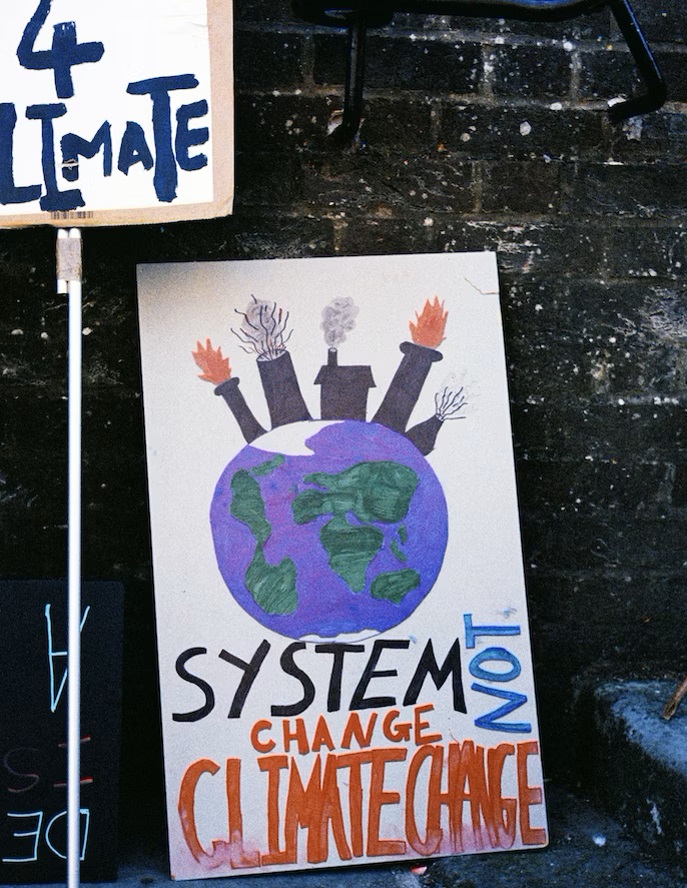
Earth's changing climate is causing more frequent, more severe extreme weather events, which are having a devastating impact on ecosystems across the planet. Some areas show much greater vulnerability to climate change, with countries such as the Philippines, Myanmar and Thailand among the worst affected.
Professor David Ding and Sarah Beh at Singapore Management University have produced a study examining the environmental performance of Southeast Asian countries in mitigating climate change.
Read their original research here: https://doi.org/10.3390/su14020999
Transcript:
Hello and welcome to Research Pod. Thank you for listening and joining us today. In this episode, we will be looking at the work of Professor David Ding from the Lee Kong Chian School of Business at Singapore Management University and Sarah Beh from the School of Economics at the University. Together, this research team have produced a study examining the environmental performance of Southeast Asian countries in mitigating climate change.
The earth has warmed by about one degree Celsius more than in the pre-industrial age, primarily due to human industrialization and economic activities, and the associated release of carbon emissions into the atmosphere. This increase in temperature is causing environmental change and resulting in more frequent, more severe extreme weather events, which are having a devastating impact on ecosystems across the planet. Different regions of the world are being impacted at different paces though, with some areas showing much greater vulnerability to climate change. One such region already suffering notable loss of life, population displacement and economic devastation is Southeast Asia, with countries such as the Philippines, Myanmar and Thailand most affected thus far.
The United Nations set out clear actions to reduce and mitigate climate change, as part of its Sustainable Development Goals. In Paris, one hundred and ninety six countries came together in 2015 and committed to take action to limit global warming to 1.5 degrees Celsius over that of pre-industrial temperature levels. Each country took responsibility for defining strategies and plans to achieve this goal and mitigate climate change. Within the Southeast Asian region, all ten ASEAN (or, Association of South East Asian Nations) member countries committed to a unified approach to fighting climate change, as part of the 2015 Paris Climate agreement. However, ongoing human activities within the region, such as deforestation within the agricultural sector, continue to contribute to carbon emissions and climate change. Professor Ding and Sarah say it is important to monitor progress in implementing the commitments countries have made to reducing carbon emissions, so that the challenges, obstacles, and successes can be better understood and managed. They note that there are currently no known empirical studies evaluating the environmental performance of ASEAN countries, compared to other countries and regions, in their progress towards achieving the agreed goals and strategies to mitigate climate change. For this reason, the research team designed a study to evaluate the environmental performance indicators within the ASEAN region and present a comprehensive empirical scientific understanding of efforts by different sectors to combat climate change.
Professor Ding and Sarah designed their study using the United Nations 13th Sustainable Development Goal to evaluate the performance of the ASEAN region in achieving the goals needed to combat climate change. The UN framework provides an Environmental Performance Index (EPI) which enables a quantitative assessment to be made across eleven different areas and an overall performance score to be calculated out of 100. The research team explain that higher scores indicate better environmental performance by a specific country, with a low score indicating the opposite. The EPI areas include air quality, sanitation and drinking water, waste management, heavy metals, biodiversity and habitat, ecosystem services, fisheries, pollution, agriculture, water resources and climate change. Using this EPI data, the research team calculated a Climate Change Index and analysed the environmental performance of different ASEAN countries across a time period from 1995-2020.
Only six of the ten countries within the ASEAN group have climate change data available within the EPI Technical Index. Using available data from these countries, Professor Ding and Sarah calculated a Climate Change Index across eight indexes of climate change, namely growth rates of Carbon Dioxide; Methane; Fluorinated Gas Emissions; Nitrogen Dioxide; and Black Carbon; as well as CO2 emissions from Land Cover; Green House Gas Intensity Trend; and Green House Gas per capita. The complexity of the study required that GDP per capita be used to control for the level of development of a country, as previous research has shown that carbon dioxide emissions are influenced strongly by GDP.
Once the data had been analysed, Professor Ding and Sarah compared the performance of the ASEAN region on three points of comparison: firstly, they compared with other regions of the world, such as Eastern Europe, the former Soviet States, the Global West, Greater Middle East, Latin America and the Caribbean, Southern Asia and Sub-Saharan Africa; secondly, with all non-ASEAN countries; and finally among each county in the ASEAN region namely Singapore, Indonesia, Malaysia, Thailand and the Philippines. This comparative analysis provided a rich set of data against which the research team could evaluate and understand the ASEAN region’s progress towards achieving the UN’s sustainable development climate change goals.
Professor Ding and Sarah say that the empirical results of their study confirmed the findings of other studies which have shown that countries with a higher GDP per capita display better environmental performance. Thus, the level of development of a country influences their progress in combatting climate change. In comparing ASEAN countries with non-ASEAN countries, the research team found that ASEAN countries as a whole perform worse on environmental performance indicators. When looking beyond the Southeast Asian region, the data showed that the Greater Middle East and Sub-Saharan Africa region also performed worse than the other regions.
Within the ASEAN region, the analysis across the countries included in the study confirmed again that GDP per capita had a positive influence on environmental performance scores. Singapore performed best out of the ASEAN countries on the Climate Change Index score; however, the research team point out that this may not be due entirely to Singapore’s wealth. The data analysis indicated that individual country wealth is not the most significant influencer of Climate Change Index scores beyond the 95% level of statistical significance and that regional wealth influences scores at the 99% level of statistical significance per capita GDP.
Professor Ding and Sarah also tracked changes across time in the environmental performance of different countries. Within the ASEAN group, Singapore and the Philippines showed declining performance in 2008; however, since the 2015 Paris Agreement, all countries in the region have shown some improvements on the Climate Change Index scores. These include reductions in carbon dioxide and methane emissions in recent years, even though some concerns remain regarding the overall greenhouse gas per capita for Singapore and the Methane Growth Rate for Indonesia.
Looking more broadly to understand other factors impacting environmental performance results, the research team extended their analysis to evaluate the role of country governance on these results. Professor Ding and Sarah explain that previous research studies and the Organization for Economic Co-operation and Development (OECD) have noted that effective governance and cooperation across all levels of government impact EPI performance. Using the World Bank’s Government Effectiveness (GOE) index to analyse this influence, the research team conducted a quantitative analysis to determine the importance of governance in EPI performance across the ASEAN countries included in the analysis. They found that more effective governance is reflected in better environmental performance.
In concluding their study, Professor Ding and Sarah note that while effective governance and country wealth have a positive influence on a country’s climate change index, ultimate success in combatting global warming requires mutual collaboration across regions and countries, and this needs to include policy sharing and leveraging climate change funds. This is key to mitigating climate change and enabling countries to adapt and respond to extreme climate events.
The research team note that while ASEAN members have taken extensive steps to coordinate efforts to fight climate change, the region as a whole is underperforming when compared to other regions. This key outcome from the data analysis highlights the critical need for more extensive coordinated efforts to be made across governments, to ensure that the ASEAN region implements necessary actions to limit the rise in the temperature of the earth to no more than 1.5 degrees.
In Professor Dings own words –
“Climate change poses a danger to the population in ASEAN through food insecurity, adverse health impacts, and population displacement. It is thus pertinent that each country within ASEAN plays their part in mitigating the harmful impact of climate change and to adapt their efforts in cooperation with other countries and regions to improve the environment.”
That’s all for this episode, thanks for listening. You can find the paper on climate change in the show notes for this episode and, as ever, be sure to subscribe to ResearchPod to hear more of the latest science news.
See you again soon.
Also published on: https://researchpod.org/earth-environment/mitigating-climate-change-southeast-asia
Podcast is also available on Spotify, Apple iTunes, Google Podcasts, and many more (please use search term “ResearchPod”).
See More News
Want to see more of SMU Research?
Sign up for Research@SMU e-newslettter to know more about our research and research-related events!
If you would like to remove yourself from all our mailing list, please visit https://eservices.smu.edu.sg/internet/DNC/Default.aspx

